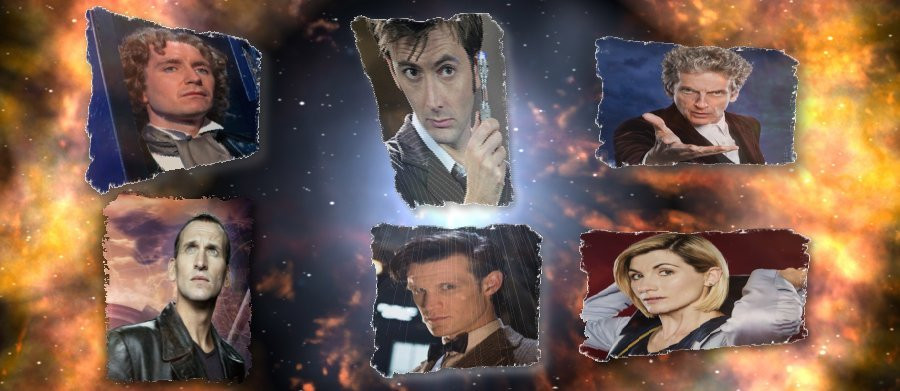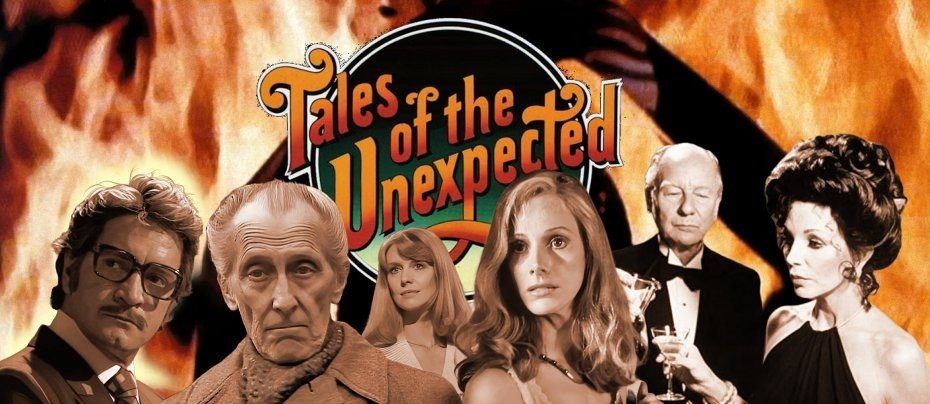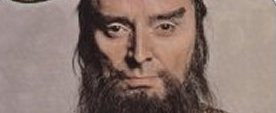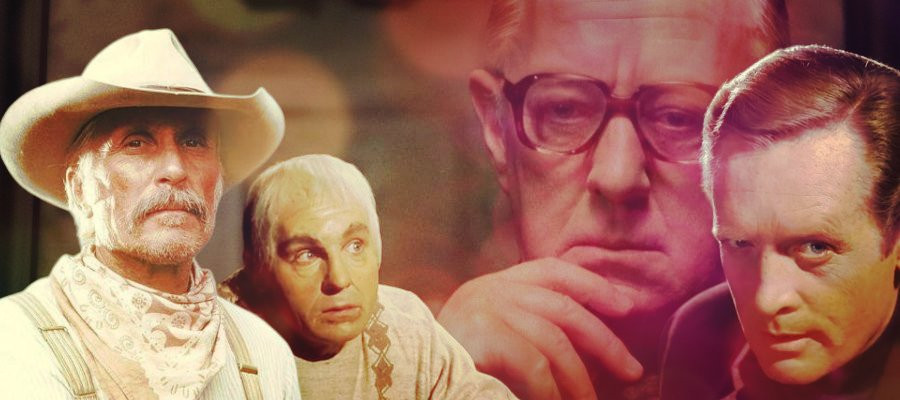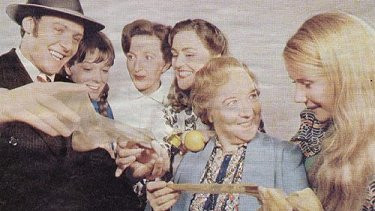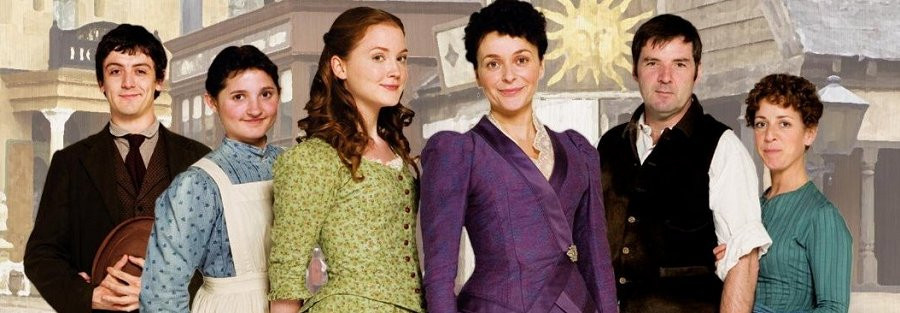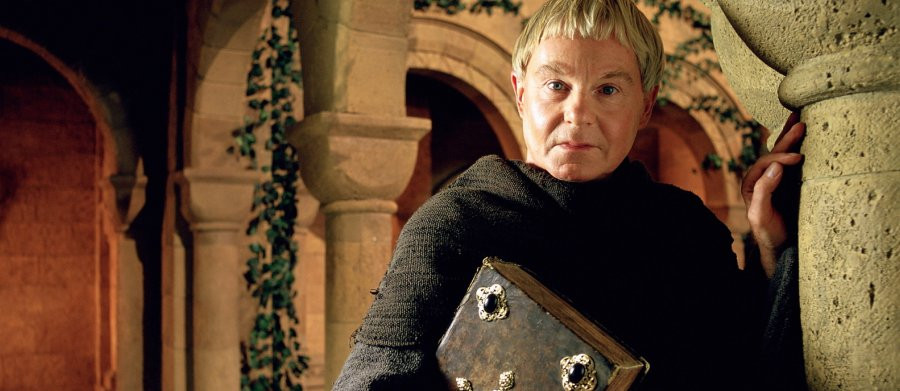
Cadfael
1994 - United KingdomReview - John Winterson Richards
This excellent adaptation of Ellis Peters' novels was overlooked unfairly by audiences when it was first broadcast in the 1990s but it stands the test of time very well.
The novels were a relatively early example of a genre that has since become far more popular, historical detective fiction. Edith Pargeter, to give Peters her real name, was already established, if not exactly well known, as a writer of more "literary" historical fiction when she found enormous commercial success in her sixties with the eponymous 12th Century monk and amateur sleuth.
The strengths of the Cadfael novels are the strengths of a great historical novelist: Pargeter had a perfect sense of time and place, based on scholarly research, and she was capable of putting interesting three-dimensional characters in settings that were unfamiliar to most modern readers. She was also prepared to engage sympathetically, if not uncritically, with the Spirituality of the Middle Ages, which frightens many modern writers and undermines their authenticity. However, like many successful authors forced by business imperatives to keep returning to the same well, Pargeter was not always as imaginative when it came to the construction of the mystery plots. The later books in particular have a tendency to telegraph the villain.
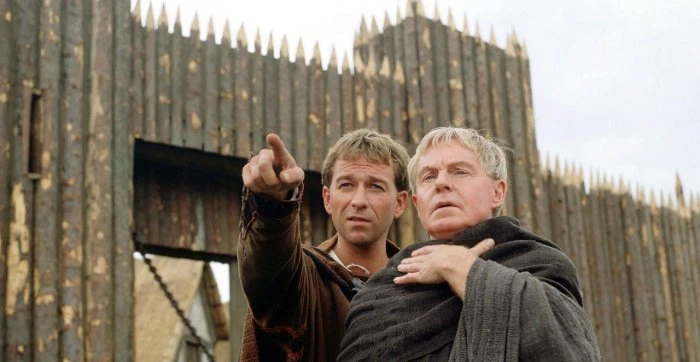
It is fair to say that both these strengths and these weaknesses are magnified in the television version.
This first series was probably the best, getting off to a flying start with "One Corpse Too Many", which cleverly sets a relatively intimate murder off against the historical tragedy of the massacre of the garrison of Shrewsbury Castle. All credit to the adaptors for not over-emphasising the irony. Other episodes bring different aspects of Middle Ages culture - such as the merchant class in "The Sanctuary Sparrow" - brilliantly brought to life, showing how, as in any time and place, it had its horrors and its joys.
The production values are, at least by standards of British television, excellent. The producers got great value for money filming in Hungary not long after the liberation of Eastern Europe.
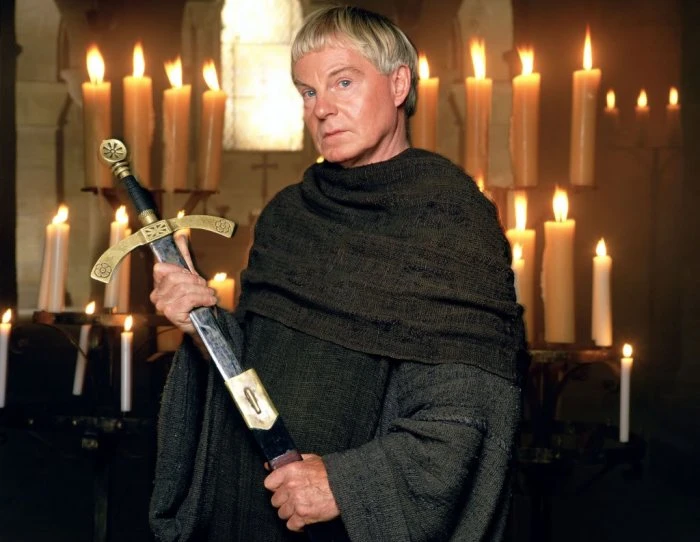
However, the best thing about the production is, predictably, the acting. Sir Derek Jacobi emphasises the humanity of Brother Cadfael - where others whose names came up in the original casting, notably Sir Anthony Hopkins, Sir Ian Holm, and Philip Madoc, might have made more of the darker side. In the end, the choice of the versatile Jacobi was probably the right option: his Cadfael is easy company, the sort of holy but humane counsellor from whom most of us would benefit. The supporting cast is also fine, much of the fun coming from spotting now familiar faces in early roles, including Sean Pertwee as the first - and possibly best - Hugh Berengar, Anna Friel, and Hugh Bonneville, billed here as Richard.
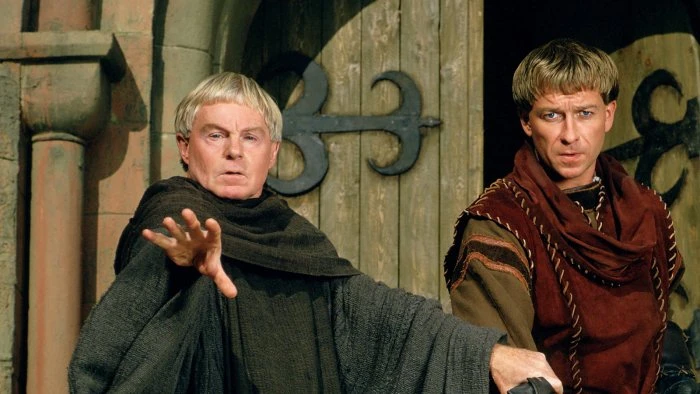
Ultimately, it is the conflict within Cadfael himself - a man of the world aspiring to be something better - that proves more interesting than any conflict with the Villain of the Week. Solving the mystery to him is only part of trying to solve a greater Mystery. His search for Truth means more than finding out all the facts of the case, and he realises the claims of strict Justice sometimes need to be set against the claims of Mercy, Humility, and Forgiveness. He is therefore perhaps the original "holistic detective," predating Douglas Adams' contemporary version.
It is this strong sense of values, trying to balance morality and tolerance, that raises Cadfael head and shoulders above the vast heap of contemporary crime dramas and thrillers that all seem so much the same these days. Where most of them end with the "good guys" chuckling as the villain lies dead or is led off to unspecified - but probably very unpleasant - punishment, an episode of Cadfael is more likely to conclude with the monk rather sad about it all and wondering what it might mean. One feels that, although the case is solved, his questioning has only begun.
Perhaps it is this failure to wrap things up in neat packages that put off the mass audience - but it is also what makes Cadfael great television for those prepared to think as they watch.
Seen this show? How do you rate it?
Seen this show? How do you rate it?
Published on October 7th, 2019. Written by John Winterson Richards for Television Heaven.


